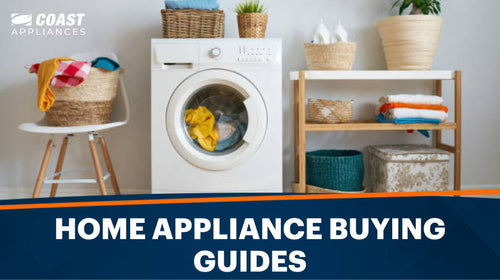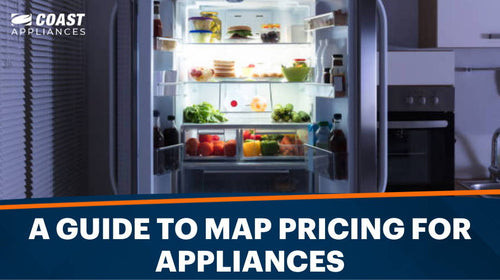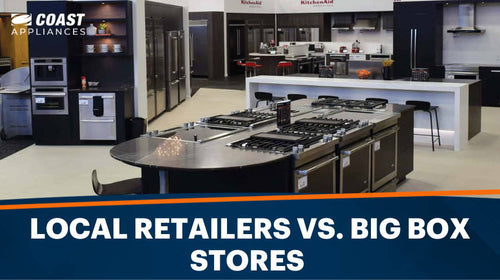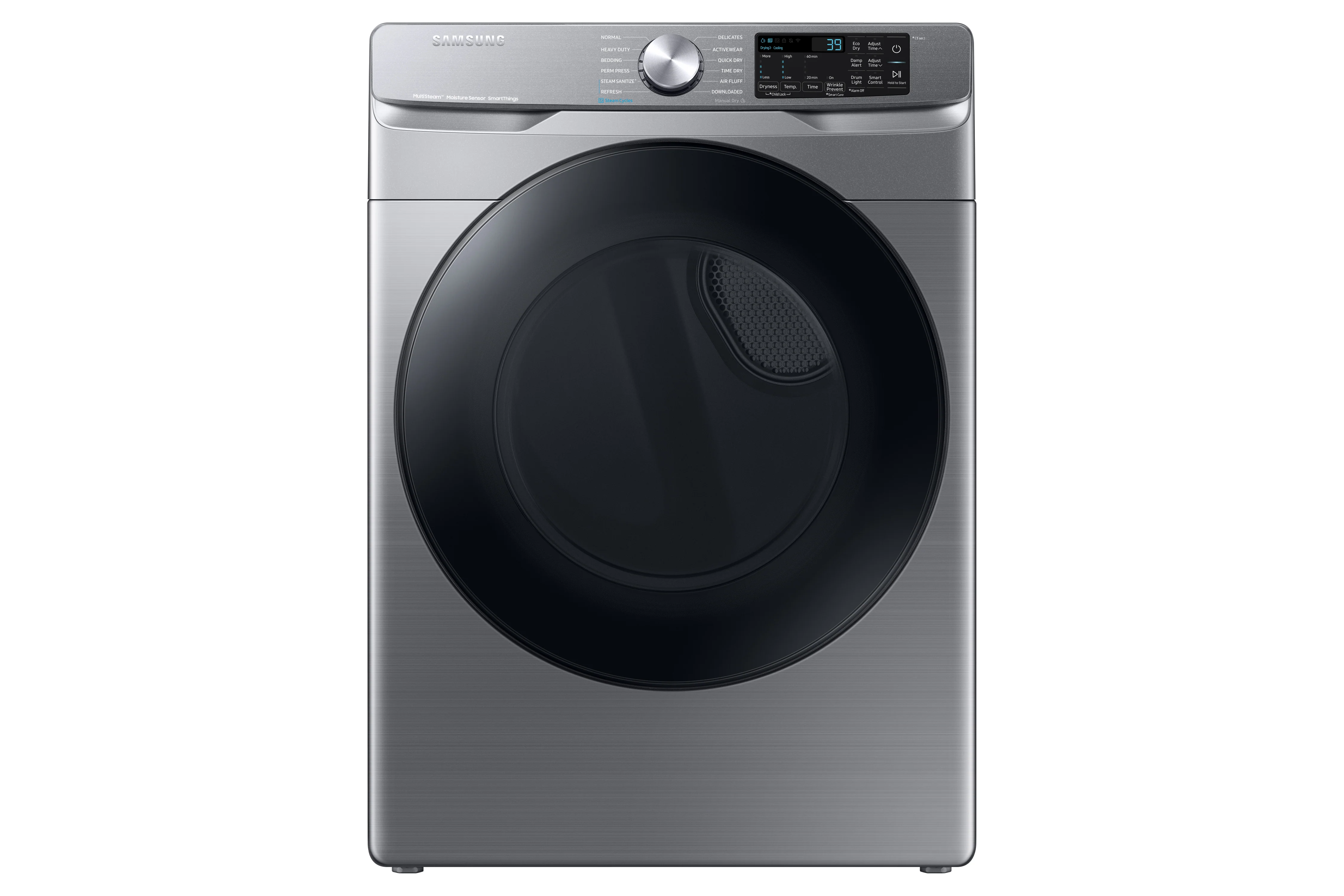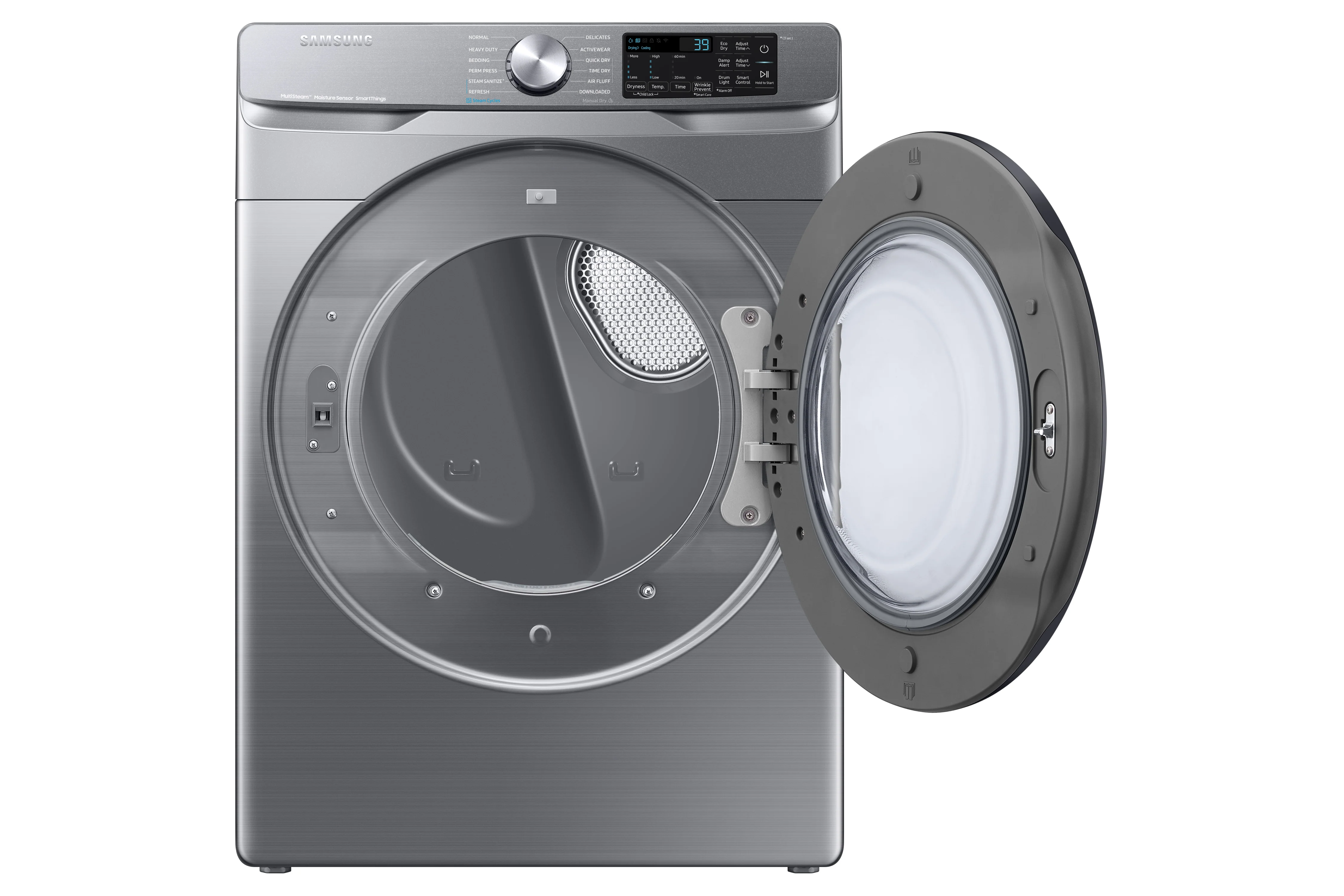If you're preparing to buy a new clothes dryer, you'll find you have an impressive selection to choose from these days – in fact, it may even feel overwhelming once you realize how many there are to choose from. How do you know what to get? Which one is right? This is why it’s so important to learn about the many types of dryer machines available, so that you can find the best one for your home and needs.
To learn more about your dryer options, browse Coast's full inventory of dryers today.
In this article, we’ll cover:
- What Are the Different Types of Dryers?
- Which Type of Dryer is Best for Me?
- FAQs About Different Types of Dryers
Are There Different Types of Dryers?
While all dryers use heat to quickly and efficiently dry wet clothing and items, not all machines operate in the same way. There are several different types of dryers, each with their own advantages and disadvantages.
Read on to learn more about the most popular types of dryers on the market today.
What Are the Different Types of Dryers?
We're breaking down the differences between some of the most common kinds of dryers on the market. The dryer types we'll discuss are:
- Gas Dryers
- Electric Dryers
- Vented Dryers
- Condenser Dryers
- Heat Pump Dryers
What is a Gas Dryer?
Gas dryers use natural gas or propane to produce heated air. This allows the appliance to dry clothing and linens without using much electricity. To install a gas dryer, you'll need a venting system as well as a gas hookup.
PROS: A gas dryer machine can produce very hot air that dries clothes quickly. Since gas dryers use less electricity, they can be more energy efficient than other types of dryers. Gas dryers usually cost less to run per load, which can lead to long-term savings.
CONS: While gas dryers can save you money in the long run, some models might be more expensive upfront. They're a good choice for people who already have an existing gas hookup, but they're not always the best option for households that don’t have access to natural gas or a proper venting system.
What is an Electric Dryer?
Electric dryers use electricity to produce heat and power machines. Most electric dryers require a 240-volt outlet. The majority of models need venting, but ventless options are available.
PROS: Since electric dryers are one of the most popular types of dryers, there are countless models to choose from. You can find electric dryers for all budgets and models with a range of features. In addition, electric dryers are usually very easy to install.
CONS: When comparing a gas dryer vs electric, however, depending on your needs, you may find that some electric models fall short. Electric dryers usually require twice as many revolutions as a gas dryer to fully dry items, meaning longer dry times, more cost to run per load, and more stress on clothes. With an electric dryer, you'll also have higher energy bills.
What is a Vented Dryer?
A vented dryer heats up air and sends it to the drum of the dryer, then vents that hot hair out of the dryer when it starts to become moist. This means that the dryer will have a steady stream of fresh and dry air. To install a vented dryer, you'll need a venting system.
PROS: Many vented dryers have a large capacity, making them ideal for large households. They're able to dry clothes quickly and often have a lower upfront cost when compared to a ventless dryer. You’ll also have a wide range of models to choose from.
CONS: While there are definite benefits to vented dryers, they aren't an option for all households. Since vented dryers release humidity into the air, they may not be the best choice if you live in a very humid climate. Using a vented dryer can also lead to higher energy costs over time.
What is a Condenser Dryer?
Condenser dryers pull in air from around the appliance and collect it in a water tank. That air is passed through a condenser, where it's heated and sent to the drum of the dryer. These dryers are able to recycle the air in your laundry room and use it to dry your clothes.
PROS: Since condenser dryers don't require a venting system, they can be installed in any part of your home. These dryers also remove moisture from the air, which can help you avoid condensation while the dryer is running. Many condenser dryers are equipped with cutting-edge features that make them easier than ever to use.
CONS: While condenser dryers offer impressive features, they can also be more expensive than some other vented models. On top of that, they take longer to dry clothes. Most condenser dryers are less energy efficient than comparable vented dryers.
What is a Heat Pump Dryer?
A heat pump dryer is similar to a condenser dryer, but it uses a heat pump to remove moisture rather than a condenser. Not only do these appliances draw in air from around the dryer, but they’re also able to recycle the air inside the drum. This allows these dryers to use less energy than other models.
PROS: Heat pump dryers are energy efficient and don't require any sort of venting system, allowing them to be installed anywhere in the home. You'll also have the option of connecting your dryer to a drain hose. These dryers can be durable, reliable, and don't put much stress on clothes.
CONS: Heat pump dryers can take a long time to dry clothing. Many models have a high upfront cost, especially if you want a dryer with a wider range of features. You'll also need to make sure you empty the dryer's water tank after each use.
Which Type of Dryer is Best for Me?
When you're investing in a dryer, you'll have no shortage of options to choose from. There are many types of dryers available, including vented and ventless dryers, gas and electric models, and other systems. Comparing the different options will help you find the best dryer machine for your household.
Before you buy a dryer, it can be wise to assess your needs. Try asking yourself a few questions to help determine what you should be looking for, such as:
- Do I have a gas or electric setup?
- How many people are in my household?
- What’s my budget?
- Where will the dryer be stored?
- How much space do I have?
- Do I have a ventilation system?
Learn more about which dryer is right for you with our Dryer Buying Guide
FAQs About Different Types of Dryers
How many types of dryers are there?
There are a wide range of dryers on the market, including gas, electric, vented, condensation, and heat-pump versions. It's best to look at a range of models and styles before choosing a dryer for your home.
Which type of dryer is best?
The best dryer for your household will vary based on your needs. Consider buying an appliance from a leading brand, such as a Maytag dryer or GE dryer to ensure you get a solid machine with a decent warranty.
Which is better – heat pump or condenser dryer?
Condenser dryers are faster than heat pump dryers, but those with a heat pump are gentler on fabrics. A heat pump dryer is likely to cost more upfront but may ultimately be less expensive in the long run.
What is the difference between vented and condenser dryer?
Vented dryers expel hot air through a vent system, but condenser dryers are able to recycle hot air into water. The water that a condensation dryer produces is stored in a tank that must be emptied out regularly.
Do condenser dryers shrink clothes?
Condenser dryers can get very hot, which means they're more likely to shrink clothes. To prevent shrinking, dry your clothes on the lowest available heat setting.
Do all dryers need a vent?
Some dryers need vents, but there are also ventless systems available. Learn more about types of dryer vents and see if your home has a venting system before you make any purchase decisions.
Why do dryers need vents?
Vented dryers need to use a vent to expel heat and moisture from the dryer. Only ventless dryers can be safely run without a vent.
What is a ventless dryer?
A ventless dryer recirculates the air in a dryer, which means air doesn't need to be expelled through a vent. Typically, ventless dryers use a condenser or heat pump system.
If you don't know the first thing about dryers, finding the right appliance can seem daunting. Thankfully, even if you have questions like what does tumble dry mean, we can help you choose the perfect dryer to meet all your household's needs.
Browse our full selection of electric and gas dryers to find the best available options and get started today.

